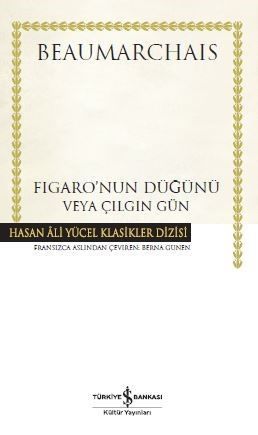
The Marriage of Figaro or the Crazy Day
Pierre Augustin Caron de Beaumarchais (1732-1799): He was born in Paris, the son of a watchmaker. He worked as a watchmaker, teacher, merchant and diplomat. After acquiring the title of nobility, he lived in Spain. He wrote many theater plays. His works were burned and banned, but they were applauded by the public, even by the nobles he criticized. He founded the Theater Writers Association. He published Voltaire's works in Germany. It provided weapons and ships to the struggle for independence in America. Because he was considered a suspect during the terror period, he was only able to return to France three years before his death. The first of the three great Figaro plays to which the author owes his fame is The Barber of Seville or Futile Measure. This is followed by The Marriage of Figaro or The Mad Day and The Guilty Mother or The Other Tartuffe. The Marriage of Figaro was first staged in 1784. The play is the story of the marriage of Count Almaviva's shrewd servant Figaro and the countess's maid Suzanne, which develops through ridiculous coincidences, while also criticizing the aristocratic immorality that is contrary to the virtue of the people. The work was composed two years later by Wolfgang Amadeus Mozart, with a libretto by Lorenzo Da Ponte, and was staged in Vienna in 1786.
(From the Promotional Bulletin)
Dough Type: 2nd Dough
Size: 12.5 x 20.5
First Printing Year: 2019
Number of Printings: 1st Edition
Language: Turkish
| Publisher | : | İşbank Culture Publications |
| The heart | : | Turkish |


